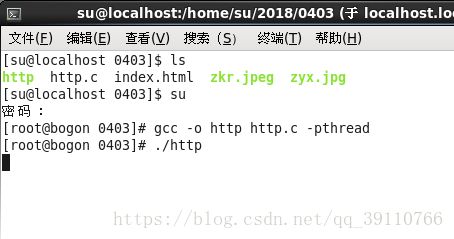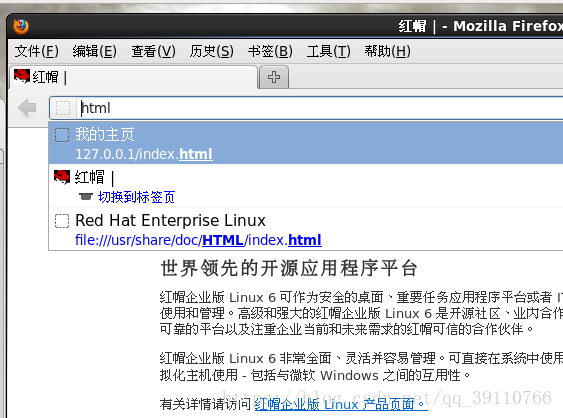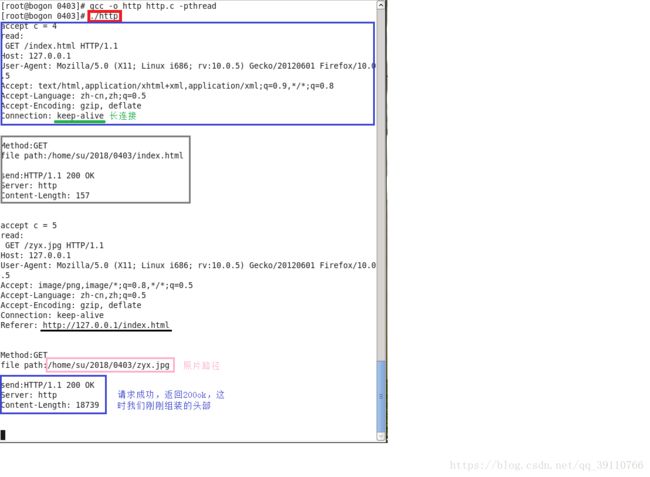Linux之访问internet上的web服务器(HTTP的应用)
关于http的理论知识可以点这里
http.c的代码展示:
#includehtml文件内容展示:
1 <html>
2 <head>
3 <title>我的主页title>
4 head>
5
6 <body background = "zyx.jpg">
7 <center>
8 <h2>张艺兴是我男神!!!
9 <br>
10 center>
11 body>
12 html> 结果展示:
编译http文件注意两点:
1.必须是管理员权限。
2.在编译的时候要链接线程,在编译命令之后加上-pthread

这时在我们没有访问时处于阻塞状态。。。
访问linux中的火狐浏览器注意要打开网络连接哦!!!

如上图输入127.0.0.1/index.html

哈哈哈哈,张艺兴是我男神!!!(男神的图片必须最大)
好啦,那我们来看看刚刚阻塞的http.c文件执行后现在有什么信息?
